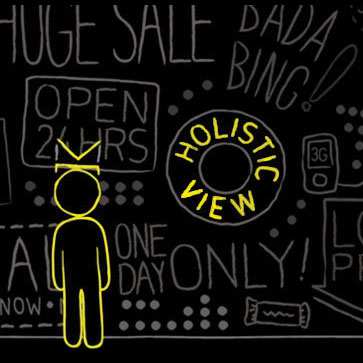The Rise of Marketing Mix Modeling

Follow Unilever's Lead on Ad Spend?
Accurate and detailed reporting is of paramount importance to the success of digital advertising initiatives for brands both large and small.
Failure on the part of advertising networks to provide clear and meaningful data on the performance of those efforts, or worse, changing how metrics are reported after the fact, could ultimately mean advertising dollars go where the reporting is best.
Consumer-goods giant Unilever Plc, for example, recently indicated to Bloomberg that it would shift its marketing spending to platforms that do the best job of reporting how ads are performing.
The reach and popularity of platforms such as Facebook and Google make them attractive to marketers with the two companies controlling about 90 percent of all online advertising. The effectiveness of these digital marketing channels however has come under scrutiny, with many companies routinely questioning the quality of ad performance data and specifically how many online ads are actually viewed by actual humans (instead of bots). Facebook, deservedly so, receives the bulk of complaints.
Keith Weed, Unilever's chief marketing officer actually went as far as to use his keynote in Cannes last month to urge reform, calling for a far stricter approach on how much of an ad must be viewed before these platforms clients are billed, and asking for third-party verification instead of trusting Facebook and Google to report on an ad's performance.
Unilever announced a 30 percent reduction in spending on ad production earlier this year, part of a strategic review following a takeover bid by Kraft Heinz Co. The company also said it would halve the number of creative agencies it works with, to 1,500 from 3,000. So, here's the question? Are you currently satisfied with the return from your Facebook campaigns? Is anybody? Is Facebook even doing anything about the problem? In a way, yes.
Facebook has been under some "heat" over the past few years about the quality (i.e., accuracy) of its ad reporting but the company has been engaging with those that are doing large-scale measurement on their own in order to provide big spenders like Unilever some much needed validation.
Analytics consultancy Ekimetrics, for example, announced that it will be joining Facebook's new Marketing Mix Modeling program (released in Jan. 2017).
The companies who are part of the Facebook MMM Partner Program measure advertising's impact on Facebook, Instagram and Facebook Audience Network. Advertisers need to measure the outcomes of their media investments, and identify correlations between their brand and an impact on their sales.
What this enables Ekimetrics to do is provide advertisers with a better understanding of their media mix in different channels. They will be able to compare the effectiveness of offline/online investments with the kind of accuracy that advertisers increasingly demand.
The Ekimetrics will reportdly measure the unique market ROI, measuring the quantitative impact of advertising investments on sales and the brand, as well as compare investments between different social networks with a granularity by category, product, country and content that is well above current practices.
"The fact that Facebook has chosen us is a recognition of our unique expertise in marketing ROI thanks to innovative methodologies," said Quentin Michard, CEO Ekimetrics..
"This will be a great opportunity for our customers and partners to bring tangible enhancements to measuring digital and social ROI, breaking with traditional and still very incomplete allocation methods. This is also the result of 10 years of experience in data, and of our philosophy which, from the start, has always been to combine human and technological intelligence.








